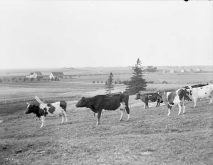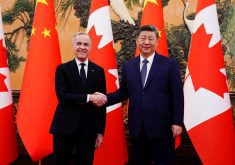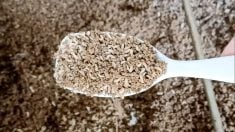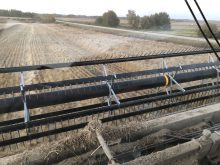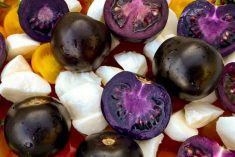A few years back, the world made a lot of fun of the late Donald Rumsfeld, formerly the defence secretary in the George W. Bush administration, over his comments about the war in Iraq.
His statement, albeit delivered in tortured syntax that fired up the emerging mockery machine was, essentially: There are things we know. There are things we know we don’t know. And then there are things we don’t realize that we don’t know.
There’s not, truth be told, much to quibble with in that statement, and as we find out in the front-page story of our Mar. 24 issue of the Co-operator, Manitoba farmers find themselves grappling with a lot of unknowns just now.
Read Also

Farm equipment market unlikely to pick up
North America’s farm machinery sales have been slow and uncertain thanks to tariffs and trade disruption. There’s not a lot of hope for change in 2026.
There’s an uncertain and volatile market. What most of us wouldn’t do for a crystal ball to tell us how the weather and geopolitical upset is going to shake out in the next couple of months.
At least one market watcher, Glacier FarmMedia’s Bruce Burnett, says that he’s expecting no quick solution to the war in Ukraine and its fallout. He’s probably right on the money.
While nobody can predict when the war will end, another report found on the front of our FarmIt section shows the scope of worries from the perspective of farmers in Ukraine. Agriculture journalist Ihor Pavliuk writes of their challenges in his story ‘Farming behind the lines in Ukraine’, and talks of their concern over damage to vital port infrastructure that will take time and money to repair when the fighting stops.
And the weather, of course, is anyone’s guess. As our Geralyn Wichers reports, there’s plenty of snowpack out there, but whether that translates into moisture in the ground is anyone’s guess. And even if it does infiltrate, it’s still not enough to pull the province out of moisture deficit — though it is a good start.
It’s against this backdrop that you’ll be making some pretty expensive business decisions. Nitrogen that was $500 a tonne just over a year ago is sitting around $1,400 a tonne now.
And while the current prices would offset that risk, many farmers are no doubt reluctant to price too much, with as much production risk out there as there is.
It might be a year to investigate the use of some canny pricing strategies such as options that can help lock in some upside potential, limit the downside and offset that production risk. But as more than one farmer has reminded me over the years, those strategies aren’t free and can cut into the bottom line too.
One farmer I was talking to recently described the looming season as a ‘scary year.’ As he says, “prices have gone crazy for both grain and inputs” and subsoil moisture reserves were near zero, so he’d had a little chat with his accountant while doing last year’s taxes.
The accountant, a former agriculture lender who does a bit of bookkeeping now in semi-retirement, said my friend’s gut feeling was an accurate reflection of risk.
His assessment was that his clients were mostly facing an all-or-nothing kind of year. It is either going to be very good, or very bad. And not a heck of a lot in between.
And that’s only taking into account the known unknowns. It’s in the unknown unknowns that a person could decide the only prudent course of action would be to stay in bed and pull the covers over their head.
Who knows what flock of black swans lies over the horizon for all of us? Just over two years ago I’d have laughed at anyone who said I’d be just emerging from two years of intermittent pandemic lockdowns right now. And I will admit I did not have “Russia tries to start the Third World War” on my apocalypse bingo card for 2022.
But, of course, the province’s farmers won’t just give up. What our reporter found, while talking to farmers, was still overall optimism. They liked their chances, on balance, for the season, and were going to do their best.
It’s been an interesting couple of years. And it looks like 2022 is already set to rank right up there with the rest of them. Yet, somehow, most of us have persevered and some have even thrived in unexpected ways.
I remember years ago, in the late 1990s, I was just starting my career, as a junior reporter here at the Manitoba Co-operator. One of my earliest assignments was to visit farmers in Westman who were struggling terribly to put in a crop.
I recall asking one farmer why, in the face of all odds, he kept trying to seed his crop despite the terrible conditions. Now, close to 25 years later, I can still recall his response pretty much word for word.
“Because I am a farmer. It’s what I do.”
We see this attitude around the world. Despite terrible drought conditions Brazilian farmers have got in the lion’s share of their corn crop. Even with war raging around them, the farmers of Ukraine plan to sow their fields.
And here at home, in the face of drought and risk, farmers prepare to do the same.
They’re farmers. It’s what they do.



